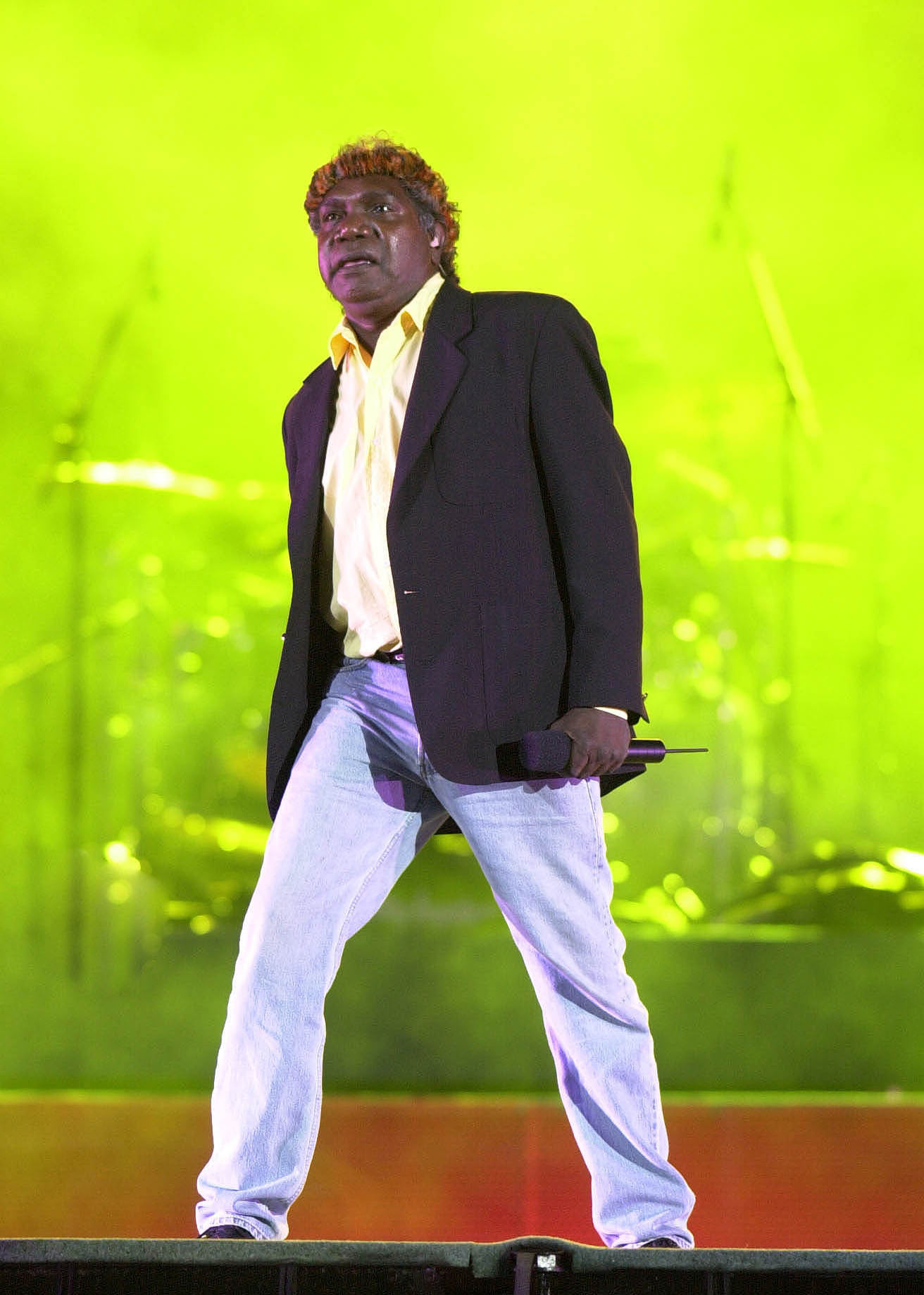Yunupingu, Mandawuy (1956-2013), was an Australian Aboriginal musician and activist. Yunupingu was a founding member of the Australian band Yothu Yindi. He is best known for popularizing Aboriginal music within Australia and around the world. His music is a mixture of rock and pop, combined with traditional Aboriginal elements. 
Tom Djambayang Bakamana Yunupingu was born on Sept. 17, 1956, at Yirrkala, on the Gove Peninsula in Arnhem Land. Arnhem Land, in the northeastern corner of the Northern Territory, has long been a center of traditional Aboriginal life. Yunupingu’s father was a prominent community leader among the Gumatj people. They are part of the Yolngu peoples, an Australian Aboriginal group in the Northern Territory. Yunupingu’s first name was changed to Mandawuy after a community member with the same first name died, in accordance with Yolngu tradition. His brother, Galarrwuy Yunupingu, was also a well-known activist for Aboriginal rights.
Mandawuy Yunupingu attended Yirrkala Community School before studying at Deakin University. He graduated from Deakin in 1987 with a degree in education. He returned to the Yirrkala Community School to teach. In 1990, he became the school principal. As principal, Yunupingu introduced a progressive curriculum that combined Western and Aboriginal teaching methods.
While attending Deakin, he co-founded the band Yothu Yindi in 1986 with both Yolngu and non-Indigenous Australian musicians. The band’s name, translated to English, means mother and child. The name is a reference to the familial connection among the Yolngu peoples.
Yunupingu performed around Australia with Yothu Yindi. In 1988, the band went on tour in North America as a supporting act for the Australian rock band Midnight Oil. After returning to Australia, Yothu Yindi signed a deal with Mushroom Records. The band’s debut album, Homeland Movement, was released in 1989. Over the next two years, Yothu Yindi achieved greater national and international renown, eventually signing a six-album deal with the American record label Hollywood Records in 1991.
Yunupingu’s greatest fame came with the release of Yothu Yindi’s hit single “Treaty” (1991). The song criticized the Australian government under Prime Minister Bob Hawke for its failure to create a treaty between Indigenous and non-Indigenous Australians. The single was praised for blending Aboriginal and Western instruments and language and for its political message. It was included on the band’s second album, Tribal Voice (1991). Yothu Yindi won five Australian Recording Industry Association (ARIA) Awards in 1992, including song of the year.
Yunupingu was named the 1992 Australian of the Year. He was recognized for his efforts as a musician and an educator to build bridges between Australian Indigenous and non-Indigenous peoples.
Yothu Yindi won three more ARIA Awards in 1993. Having stepped down as principal following Yothu Yindi’s explosion in popularity, Yunupingu toured internationally with the band throughout the 1990’s. The band released four more albums: Freedom (1993), Birrkuta – Wild Honey (1996), One Blood (1999), and Garma (2000). Yothu Yindi was inducted into the ARIA Hall of Fame in 2012.
Yunupingu died on June 2, 2013. After his death, he was made a Companion of the Order of Australia in 2014.
